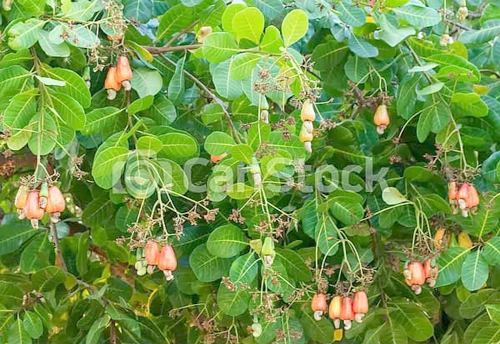Ghana is endowed with favourable agro-climatic and edaphic factors for optimal growth, development, and yield of major tree crops.
Thus, the Trees Crops Development Act, 2019 (Act 1010) and the corresponding organisation, the Tree Crops Development Authority (TCDA) aim to promote the sustainable development of cashew, shea, mango, coconut, rubber and oil palm value chains so as to supply raw materials to feed our agro-based industries (one-district, one-factory), earn foreign exchange, employ the youth and contribute towards payment of tax to the economy.
It is opined that by 2028, after full operationalisation of the TCDA, the country stands to earn extra USD 16 billion annually to diversify the entire economy.
Global agenda
Tree crops development agenda has been promoted in many tropical countries and the top 10 producing countries are acknowledged.
Available statistics from the Food and Agriculture Organisation (FAO) of the United Nations (UN) shows that apart from shea, Ghana is not among the top 10 producing countries of cashew, mango, coconut, rubber and oil palm in the world. Nevertheless, the economic opportunity of tree crops is bright and anticipated to be better in the future.
For instance, the global palm oil industry was valued at USD 65.73 billion in 2015 and expected to grow at CAGR of seven per cent between 2016 and 2021 to reach USD 92.84 billion in 2021. Thus, this is the opportune time for all Ghanaians to support the repositioning of the tree crops value chains aimed to close the gap between Ghana and her rivals as a way to galvanise the latent sub-sector.
Cameroun
The Cameroun Development Corporation (CDC) is a success story to learn from. The CDC was formed in 1947 and its plantation covers 42, 027 hectares comprising rubber (22,282 hectares), oil palm (15,240 hectares) and banana (4,525 hectares). It has a total of 22,036 workers.
The CDC exports semi-finished high quality rubber, crude palm oil, palm kernel, crude palm kernel oil and top grade edible banana to Germany and France. Thus, the CDC’s job creation, socio-economic development and export drive agenda cannot be overemphasised.
Lessons learnt
They include:
• Ghana has 102, 816 km2 of arable land for the cultivation of the six tree crops.
• Ghana is not among the top 10 producing countries of five tree crops; hence, the need to support the tree crops productivity catch-up intervention.
• The 76-year CDC continues to expand her tree crops plantation to support the socio-economic and infrastructural development of the rural community of Cameroun.
• To overcome the constraint of land tenure system, the National House of Chiefs, families and individuals who are custodian of arable land should partner with investors (faith-based entities, individuals, companies, diaspora community, farmer-based associations, etc.) to participate in the tree crops development agenda.
Way out
• The TCDA shall operationalise community engagement and investment programmes to showcase business cases, regulations & standards, horizontal & vertical linkages, partnership and tenancy agreements, plantation-outgrower scheme contract administration, technical and financial support, etc. to motivate stakeholders aimed to make informed decision to own tree crop plantation of significant size to earn reasonable financial returns in three or four decades ahead.
• Again, TCDA shall deploy communication strategy via television and newspaper advertisement, billboards, flyers, social media, FM announcement, celebrities and lobbyists through the media landscape to enable stakeholders make informed decision on partnership agreement, land acquisition, crop production, processing, trading and exporting in the four agro-ecological zones of the country.
• Some institutions should be encouraged to invest in the TCDA as equity partners so that we do not starve the flagship of financial resources to undermine the potential of it. Notably the Ghana Cocoa Board, Ghana Oil Company Limited (GOIL), Ghana Gas Company Limited, Ghana National Petroleum Corporation (GNPC), Agricultural Development Bank ADB, Ghana EXIM Bank Limited, Development Bank of Ghana, farmer-based organisations, civil society organisations (CSOs), pension and insurance companies, Metropolitan, Municipal, and district assemblies (MMDAs), etc. should be motivated to contribute equity and/or debt to ensure that TCDA is financially resourced to operate and achieve the ambitious revenue target of USD 16 billion by 2028.
• Lastly, tree crops planted shall increase the carbon sequestration capacity that, in turn, can mitigate against the adverse effects of climate change and environmental degradation and also enhance our resilient efforts to restore and conserve our degraded landscape.
Partnership
The author thanks the President of the Republic of Ghana, His Excellency Nana Addo Dankwa Akufo-Addo, the Minister of Food and Agriculture, Dr Owusu Afriyie Akoto, etc. for the frantic efforts, expertise and organisational resources aimed to close the gap between Ghana and other tropical countries in respect of tree crops development agenda. The minister has distinguished himself as one of the best food and agriculture minister in Africa since 2017.
History will go down to acknowledge their contributions towards this agenda after we have been successful in the achievement of the revenue target of USD 16 billion beyond 2028.
I implore land owners to partner with investors so that portion of the 102, 816 km2 of arable land area of the country can be put under tree crops plantation aimed to create sustainable wealth in our economy as observed in Malaysia, Indonesia, etc.
The writer is the Director, Consultancy Directorate, MDPI, Accra.





